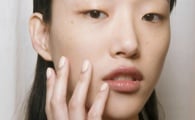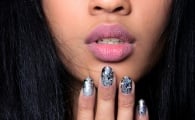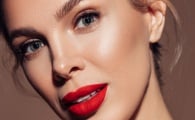Skin Care
Bakuchiol Is the Natural Retinol Alternative That's Gentle on SkinThis plant-based retinol alternative is definitely worth checking out |
Have you heard of bakuchiol before? It's been gaining a lot of traction lately as a natural form of retinol, which immediately piqued our interest, so we reached out to Dr. Purvisha Patel, founder of Visha Skincare, to find out more.
"Bakuchiol is a monoterpene phenol derived from Indian Psoralea Corylifolia, or the babchi plant," Patel says. "It has been considered a natural alternative to tested, tried and true retinol."
So, how could this random plant possibly have similar effects to retinol? Since it's a form of phenol (aka an exfoliating agent), it really does work a lot like your favorite anti-aging ingredient, explains Patel. "The exfoliation tricks the skin into thinking it's wounded, which causes an increase in collagen and elastin production. This results in a decrease in fine lines and wrinkles, as well as a lightening of sun damage spots."
How about the claims that it's gentler than retinol? "Studies comparing retinol with bakuchiol have shown that they have similar effects, with bakuchiol causing less redness, peeling and inflammation," Patel says. That said, she does warn that it could potentially be irritating in higher concentrations and that there could be more variability in strength and quality, given the fact that it's plant-derived. It's also worth noting that while the existing products and research is promising, there's still more research to be done — and in the meantime, you've got retinol, which is, as she puts it, "tried and true."
Still, with more and more brands utilizing the exciting new botanical extract, it's worth giving it a try. Keep reading for some of our favorite bakuchiol skin care products.
Image via Imaxtree
SEE NEXT PAGE: Biossance Squalane + Phyto-Retinol Serum, $78
"Bakuchiol is a monoterpene phenol derived from Indian Psoralea Corylifolia, or the babchi plant," Patel says. "It has been considered a natural alternative to tested, tried and true retinol."
So, how could this random plant possibly have similar effects to retinol? Since it's a form of phenol (aka an exfoliating agent), it really does work a lot like your favorite anti-aging ingredient, explains Patel. "The exfoliation tricks the skin into thinking it's wounded, which causes an increase in collagen and elastin production. This results in a decrease in fine lines and wrinkles, as well as a lightening of sun damage spots."
How about the claims that it's gentler than retinol? "Studies comparing retinol with bakuchiol have shown that they have similar effects, with bakuchiol causing less redness, peeling and inflammation," Patel says. That said, she does warn that it could potentially be irritating in higher concentrations and that there could be more variability in strength and quality, given the fact that it's plant-derived. It's also worth noting that while the existing products and research is promising, there's still more research to be done — and in the meantime, you've got retinol, which is, as she puts it, "tried and true."
Still, with more and more brands utilizing the exciting new botanical extract, it's worth giving it a try. Keep reading for some of our favorite bakuchiol skin care products.
Image via Imaxtree
SEE NEXT PAGE: Biossance Squalane + Phyto-Retinol Serum, $78
































